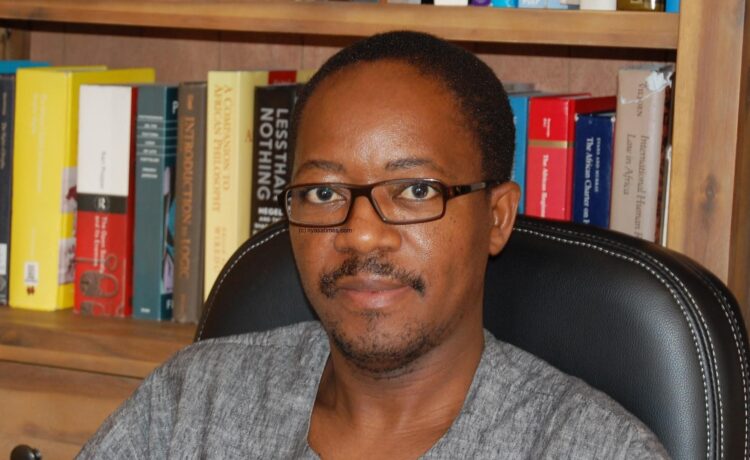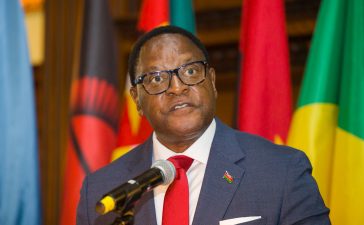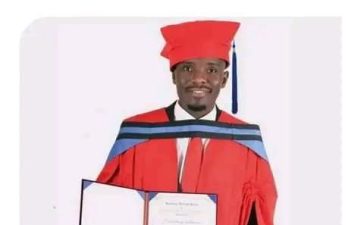“Our lawyers don’t even understand what pro bono means and have priced themselves out of reach from even the more than average Malawian.
They have no business talking about their role in enhancing access to justice. They have none and can’t prove this has been their concern.
I like the comparison that has been made with other professions such as medical doctors and nurses (medical assistants, clinical officers, and nurses), accountants (bookkeepers etc.), etc. And it is also true that police officers conduct the bulk of prosecutions, and some do so very well.
These skills can be learnt via practice. MPs must do the right thing and give limited appearance rights to paralegals who must have a regulatory structure for their legal education, admission, and discipline.
The lawyers must focus on overcharging their clients and fake pro bonos; the poor can rely on inadequately trained paralegals. After all, a fraction of a loaf of bread is better than nothing at all.” – Professor Danwood Mzikenge Chirwa, Dean of Law, University of Cape Town Controversy was courted on 7 April 2021 by a proposal from the Legal Aid Bureau to the Parliamentary Legal Affairs Committee (LAC).
Therein, the Legal Aid Bureau sought “limited right of audience” for legal aid assistants, popularly known as paralegals, in subordinate courts dealing with matters within their competence levels.
Currently, legal aid assistants cannot undertake legal representation even when the case is being prosecuted by a lay magistrate; hence the Bureau’s advocating to amend Section 14 of the Legal Aid Act.
What, you might be wondering, is the Bureau’s basis?
First, according to the Bureau, most criminal matters in subordinate courts are prosecuted by non-legal practitioners who don’t have the minimum legal qualifications that paralegals have. Hence the Bureau wondering, why not paralegals who, at least, have something?
Secondly, the Bureau says it attends to people that cannot afford to hire lawyers. These people end up without legal representation. With the Bureau’s free services, more marginalised people can be represented if the Bureau’s capacity is beefed up with court-attending paralegals.
Again, the Bureau’s 25 legal practitioners are overwhelmed. With a backlog of over 24,000 cases, they have 900 cases each! Is this sustainable?
Hence the need to rope in paralegals.
Thirdly, Malawi has about 627 practising lawyers who are inaccessible to the majority due to high poverty levels.
As such, many Malawians depend on the Legal Aid Bureau. To serve them, there is a need to utilise all of the Bureau’s resources, including its 35 legal aid assistants.
Ironically, the Bureau’s paralegals aren’t allowed to represent clients when the Malawi Police Service’s Office of the Director of Public Prosecutions’ and the Anti-Corruption Bureau’s paralegals enjoy the “limited right of audience” denied to the Legal Aid Bureau’s paralegals.
As far as advocates for amending the Legal Aid Act to give paralegals more responsibilities, this would also help clear the backlog of 628,000 cases in the country’s courts (as of 2020) and assist nearly 3,000 people who are on remand but have zero representation.
By the way, with only 627 licenced lawyers, Malawi has one of the lowest populations in the region. This translates into a lawyer-client ratio of 1:30,000, whereas the Bar International Association recommends a ratio of 1:1,944.
Put differently, we need at least 9,259 licensed lawyers to meet international standards.
This, for the advocates to amend the Legal Aid Act, is yet another reason to utilise paralegals.
Finally, those advocating for giving paralegals more responsibility contend that IF legal aid assistants were indeed incompetent, neither would lay prosecutors be allowed to prosecute nor lay magistrates be permitted to preside over any matter as they are not ‘legal practitioners’.
This raises the question: why are we happily applying double standards? Shouldn’t what is good for the goose be good for the gander?
Now, in matters to do with lawyers, the only thing you can bet on is someone with a contrary view for each view. It is typically so with this controversy.
Against this proposal is none other than the Malawi Law Society (MLS). It argues that letting paralegals represent clients in magistrate courts would compromise legal standards because the technical expertise required to handle cases before courts is that of legal practitioners.
The MLS further says that while it appreciates that the Bureau is understaffed in terms of legal practitioners, cutting corners by giving paralegals limited right of audience is not the solution.
The Bureau, the MLS insists, should lobby for more funds to hire and improve the retention of legal practitioners.
On the low number of legal practitioners at the national level, the MLS argues that with the disbandment of the University of Malawi, more universities will soon be offering law degrees, and before you know it, we will have enough lawyers for everyone.
Only if wishes were horses…
Anyway, the MLS further argues that going the paralegal way will entrench the social status of the needy by offering them less than the prescribed technical standard, which would be unfair and would lower standards when there are calls to raise the standards of legal practice.
The bottom line is that as far as the MLS is concerned, it is not prudent to lower standards for legal representation of legally aided persons by allowing less qualified persons to represent them in court.
The general public’s take?
This is where Professor Chirwa comes in.
Look here,
• Who, among us, can claim never to have been attended to by medical assistants in place of a doctor?
• When midwives are not available, is it not common practice to seek “azamba’s” services?
• In the SME sector or even in law firms, are all those handling accounts Chartered Accountants? Really? Aren’t these firms employing mere bookkeepers and thriving?
Now, what is the issue? What is so special about this case?
As expected, the predominant view in the court of public opinion is that the Legal Aid Bureau’s proposal is long overdue if truth be told.
The 627 lawyers we have, billing 24 hours a day, seven days a week, are far from enough to timeously deal with the 628,000-case backlog in our courts, let alone find time to assist – on a pro bono basis – the 3,000 remandees languishing in police cells.
I, therefore, submit that all things considered, Professor Chirwa is right: half a loaf, in fact, come to think of it, even a slice of bread is far better than nothing. In the vernacular, mwachaje sotafuna onthuni!
No one should be denied representation if we can help it.
No one.













